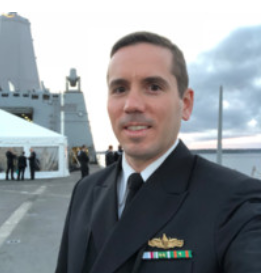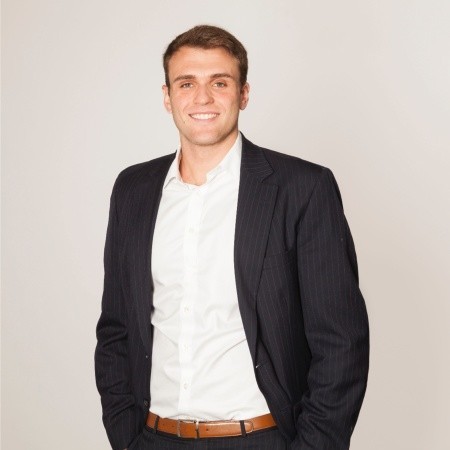
Name: Patrick C. Drain
Class Year: 2001
Job Title: Deputy Foreign Policy Advisor to the Chief of Naval Operations
Military Rank: Commander (O-5)
Organization Name: US Navy
1. In one sentence, what does your job entail?
I support the Chief of Naval Operations (CNO) through his Foreign Policy Advisor to by providing key information, analysis, and specific advice on a wide range of diplomatic and political-military issues that concern the U.S. Navy.
2. What planned and unplanned events connected you to your industry and your first employer after Holy Cross? How did you learn/decide it was a good fit for you?
I joined the US Navy in 2001 upon graduating from Holy Cross, and initially I served as a Surface Warfare Officer. It was a pretty good fit, but after about a decade I realized there was a better option for me within the Navy.
In 2011, I transferred into the Foreign Area Officer (FAO) Community in the Navy, which placed me in a cadre of Middle East (CENTCOM)-focused officers and offered one year of Arabic language training and a Master’s Degree in National Security Studies.
My focus was to do my best as a Middle East FAO, and this eventually earned me enough recognition to be asked by name to join the CNO’s personal staff.
My tip on knowing if something is a good fit: If on most days you wake up in the morning and look forward to going to work, then you’re in the right place. If on most occasions this doesn’t happen, then you should probably look for a new job.
3. What were you involved in when you were on campus?
Reserve Officer Training Corps (ROTC), all four years
Student Government Association – Class VP (freshman and sophomore years), SGA Parliamentarian (Junior Year)
Resident Assistant (Junior Year)
Students for Responsible Choices (Senior Year)
First Year Program
4. What was your major and how did it affect your career decisions?
Political Science. It was a reflection of my interest in international affairs, and I do not think it affected any of my career decisions. I could have majored in anything at Holy Cross and gone down the same path. They critical thing Holy Cross gave me is a firm foundation in thinking deeply about issues and the capability to intelligently express my ideas.
5. What are one or two skills that you developed at Holy Cross that you use in your work?
Writing. The amount of writing – and the thorough analysis of our writing, at Holy Cross helped to hone a crucially important skill for many, many jobs.
6. What advice do you have for students on campus today?
Stick with what you love to do – you’ll work with more enthusiasm in these fields than you would otherwise. Even if doing what you love means you will be starting at the bottom of what seems like an impossibly long ladder, it will be worth it in the long run. People notice enthusiasm, and it will open doors you cannot imagine.
Don’t stick with jobs that are “comfortable.” Once you get good at something and you feel like you’ve learned what you need to learn and you’ve got it down, it’s time to start thinking about where you want to go next. Look to do things that will push your envelope and force you to learn more and be more than the comfortable job ever would.
Minor in a foreign language and aim for fluency.
Take a statistics course.







